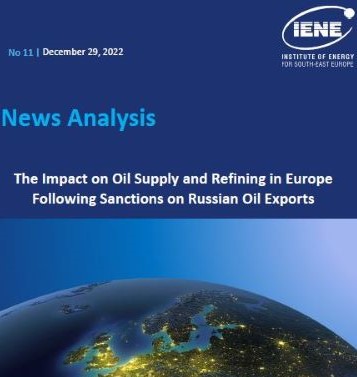In December 2022, G7 and the EU countries agreed to set a price cap on Russian oil at $60 per barrel that has now come into force. The price cap applies to seaborne crude oil, petroleum oils and oils obtained from bituminous minerals which originate in or are exported from Russia. The cap comes on top of the EU import ban on Russian seaborne crude oil and petroleum products, and the corresponding bans of other G7 partners.
In December 2022, G7 and the EU countries agreed to set a price cap on Russian oil at $60 per barrel that has now come into force. The price cap applies to seaborne crude oil, petroleum oils and oils obtained from bituminous minerals which originate in or are exported from Russia. The cap comes on top of the EU import ban on Russian seaborne crude oil and petroleum products, and the corresponding bans of other G7 partners.
This decision was taken in order to limit price surges driven by extraordinary market conditions and also drastically reduce the revenues Russia has been earning from oil since it unleashed its illegal war of aggression against Ukraine. The G7 wants to curtail the oil revenues Russia earns from oil exports and also to serve to stabilise global energy prices while mitigating adverse consequences on energy supply to third countries. The level of the cap was established in close cooperation with the Price Cap Coalition and applied from 5 December 2022. The cap is adjustable over time and the current value may be amended in the future to reflect market developments and technical changes.
In addition, the EU has prohibited EU vessels from transporting Russian crude oil (from 5 December 2022) and petroleum products (from 5 February 2023) to third countries. It has also prohibited the related provision of technical assistance, brokering services or financing or financial assistance. This ban does not apply if the crude oil or petroleum products are purchased at or below the oil price cap.
In its latest News Analysis, which is accessible (here), IENE discusses what the impact of these sanctions will be on Europe and how they will affect oil imports and refining activities. Several energy analysts estimate that there will be little or no impact on Russian oil exports and revenues. Undoubtedly, there will be an impact on imported refined petroleum products and hence the refineries in the wider SE European region are now planning to mitigate the potential risks.




